Do you like beer? Then save the climate!

“If you drink beer now, the issue of climate change is impacting you right now.” – Jenn Orgolini, New Belgium Brewing Sustainability Director
The United States beer industry, which consists of more than 2,800 breweries that generate $246.5 billion in economic output and created 2 million jobs, is already feeling the effects of climate change.1 Recognizing the importance of climate in their business, brewers are constantly seeking new ways to protect their supply chain and reduce emissions in the production of beer.2
The 3 Main Beer Ingredients
Beer, a “deeply agricultural product,” consists of water, barley, and hops, three ingredients that are negatively impacted by climate change, resulting in a supply and quality control issue for brewers.3
Water: Anywhere from 3-8 gallons of water are needed to produce one gallon of beer.4 Brewers are becoming increasingly concerned about water supply and usage as 2014 was the hottest year on record, leading to severe droughts across the US and restrictions on water usage.5 Without a constant and reliable source of clean water, brewers are simply unable to produce beer.
Barley and Hops: Barley gives beer its color and contains the sugars needed for fermentation. Hops affect the aroma and flavor of a beer. Unpredictable weather patterns including heatwaves and droughts, rising sea levels, and warmer winters all pose a threat to barley and hops by increasing the variation of their yield and quality… and with beer, the flavor and quality consistency is at stake with those variations.6
Climate Change at Smuttynose Brewing Company
Smuttynose Brewing Company, a coastal New Hampshire award-winning brewer, distributes beer in 25 states and 11 countries.7 Peter Egelston, President and co-founder of Smuttynose explains how climate change is affecting his business:”Climate change threatens Smuttynose on a number of different levels. Our coastal headquarters means we’re vulnerable to sea level rises, which all modeling shows to be true. More directly, we can’t brew beer without malting quality barley and hops, two specialized agricultural products that need consistent growing conditions.” 8
Breweries and a Climate Declaration
On March 10, 2015, Smuttynose, along with 41 other beer companies and 1,300 companies such as General Motors and eBay, signed a Climate Declaration to urge policymakers to take action on climate change and its effects on businesses.9 The 42 brewers signed also signed a beer-industry specific declaration concerning the impacts of climate change on their $246 billion industry and their individual commitments to reduce emissions and brew with the climate in mind.
Smuttynose Lives up to its Commitment
In April 2016, Smuttynose became only the second brewer in the US to achieve the Leadership in Energy and Environmental Design (LEED) Gold standard with its construction of a new headquarters building that was completed in 2014.10 LEED is an international green building standard and certification program that encourages environmentally responsible construction and operation. Below are the ways in which Smuttynose practices sustainability:
- Smuttynose’s $24 million, 14-acre headquarters utilizes an advanced building “envelope,” the structural building shell separating the inside from the outside, that prevents energy loss, makes heating and ventilation more efficient, and reduces its demand for energy and water.11
- The building is oriented west so that its large windows can take advantage of natural sunlight and also has on-demand lighting so that the need for artificial lights is reduced.12
- Trees cut down during the construction project were used to make tables for the on-site restaurant.13
- The facility reduces water use by 30.4%.14
- Smuttynose sends its spent grain to a farm to feed livestock.15
- Smuttynose utilizes specialized motors in its brewing and packaging process that create only enough energy to complete the specific task rather than having a switch to operate the motors.16
- Smuttynose installed energy efficient brewing equipment that saved more than $1 million in energy costs; it also prevented harmful emissions that would be the equivalent of driving a car for 13 million miles.17
- Smuttynose has an on-site waste water treatment plant that uses waste water from its brewing process to produce methane gas to power an on-site generator.18
How can we help? How do we save beer!
The first step to ensure we have a reliable and quality supply of beer for the distant future is to support and drink beer from the breweries who signed the Beer Climate Declaration (for a list of these companies, click here); these breweries are actively reducing harmful emissions and are constantly deriving creative solutions to brew more efficiently. But, we do not have to stop there, show your support to other non-beer companies that also pledged to battle climate change (for a list of these companies, click here); supporting these companies is important for all industries and the overall economy as breweries are not the only ones who benefit from reduced emissions. As Clark James, Smuttynose’s Facilities Manager noted, “… sustainability is a never ending journey and our boots are laced up for the trip.” 19
Word Count: 790
Sources
1. Beer Companies Join Call for Action on Climate Change, Ceres; Mobilizing Business Leadership for a Sustainable World, https://www.ceres.org/press/press-releases/beer-companies-join-call-for-action-on-climate-change
2. Life, Liberty, and the Pursuit of Hoppiness, Environmental and Energy Study Institute, http://www.eesi.org/articles/view/life-liberty-and-the-pursuit-of-hoppyness
3. Three Ways Climate Change is Going to Ruin Your Beer, Ryan Koronowski, Think Progress, https://thinkprogress.org/three-ways-climate-change-is-going-to-ruin-your-beer-bb7bf9977af8#.edfhz1ibt
4. Life, Liberty, and the Pursuit of Hoppiness, Environmental and Energy Study Institute, http://www.eesi.org/articles/view/life-liberty-and-the-pursuit-of-hoppyness
5. Three Ways Climate Change is Going to Ruin Your Beer, Ryan Koronowski, Think Progress, https://thinkprogress.org/three-ways-climate-change-is-going-to-ruin-your-beer-bb7bf9977af8#.edfhz1ibt
6. There’s Trouble Brewing for Beer in a Warmer World, Climate Central, http://www.climatecentral.org/gallery/graphics/theres-trouble-brewing-for-beer
7. Smuttynose Brewing Company, Our Story, https://smuttynose.com/about-us/our-story/
8. Smuttynose Brewery Co. Shows that Protecting the Climate has Big Benefits for New Hampshire, Michelle McCarthy, Environment New Hampshire, http://www.environmentnewhampshire.org/news/nhe/smuttynose-brewery-co-shows-protecting-climate-has-big-benefits-new-hampshire
9. Beer Companies Join Call for Action on Climate Change, Ceres; Mobilizing Business Leadership for a Sustainable World, https://www.ceres.org/press/press-releases/beer-companies-join-call-for-action-on-climate-change
10. Smuttynose Brewing Officially LEED Certified, Max Sullivan, Seacoast Online, http://www.seacoastonline.com/news/20160428/smuttynose-brewing-officially-leed-certified
11. Survival Of The Greenest Beer? Breweries Adapt To A Changing Climate, Andrea Shea, NPR, http://www.npr.org/sections/thesalt/2015/06/24/415538451/survival-of-the-greenest-beer-breweries-adapt-to-a-changing-climate
12. Meet a Green Business: Smuttynose Brewing Company, Green Alliance, http://www.greenalliance.biz/blog/archives/201509/meet-green-business-smuttynose-brewing-company
13. Ibid.
14. Smuttynose Brewing Co, Harvey, http://hccnh.com/cpt_project/smuttynose-brewing-company/
15. Meet a Green Business: Smuttynose Brewing Company, Green Alliance, http://www.greenalliance.biz/blog/archives/201509/meet-green-business-smuttynose-brewing-company
16. Ibid.
17. Smuttynose Brewery Co. Shows that Protecting the Climate has Big Benefits for New Hampshire, Michelle McCarthy, Environment New Hampshire, http://www.environmentnewhampshire.org/news/nhe/smuttynose-brewery-co-shows-protecting-climate-has-big-benefits-new-hampshire
18. Smuttynose Brewing Co, Harvey, http://hccnh.com/cpt_project/smuttynose-brewing-company/
19. Smuttynose Brewing Officially LEED Certified, Max Sullivan, Seacoast Online, http://www.seacoastonline.com/news/20160428/smuttynose-brewing-officially-leed-certified


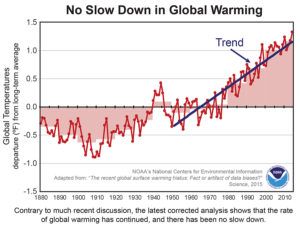

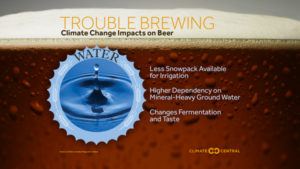
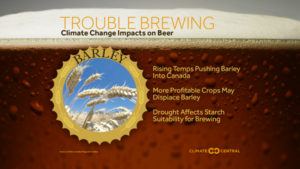
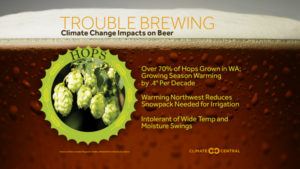
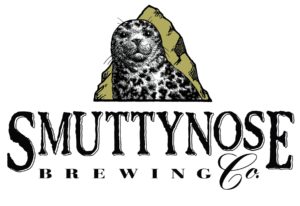
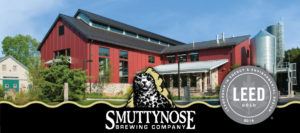
I love this super informative article, as I had no idea how much water it consumes to produce beer and the fact that climate change has impacts on the taste of beer. Clearly people will not simply stop drinking alcohol but I think there are a least two things that we can do to drink sustainably. First we should definitely consider drinking beer from the breweries who signed the Beer Climate Declaration. Hopefully this will create some pressure for producers to consider their social responsibilities more seriously. Second we may also drink responsibly. Now this is not only good to yourself and your family, but also to the Earth!
This posted reminded me of an event held in Cambridge this past September where six local breweries were challenged to brew beer using water from the Charles River. Desalitech, a local company specializing in water treatment and purification systems, hosted the challenge and offered a prize to the best tasting beer. Doesn’t sound scalable at the moment, but it could be a peek into future ideas to solve this pressing problem.
Thanks for sharing, it is interesting to learn more about Smuttynose’s sustainability initiatives. While Smuttynose’s commitment to the Climate Declaration and LEED Certification are great to increase energy and water efficiency, I am concerned that they might be more marketing initiatives than solving the underlying problem. As you said, brewers are becoming increasingly concerned about water supply and usage. Has Smuttynose done anything to date beyond increasing water efficiency, essentially reducing their water inputs throughout their supply chain?
Good post! I wonder if beer companies such as Smuttynose can consider solutions the wine industry is implementing. Some sparkling wine startups are synthetically creating taste to look and feel like the original, so that vineyards can technologically supplement their efforts to protect their products instead of losing business to other regions/sources due to climate change. Of course, this may cause some marketing challenges, but I’m sure breweries such as Smuttynose can go beyond operational improvements, and can look to innovative technologies as a lesson learned from the wine industry.
I think this post really brings out an interesting point that I haven’t seen in many of these blogs. Ultimately the consumers own a part of this whole process. By reducing the purchases from companies that are not actively reducing energy usage and promoting more sustainable business, the consumers can drive these companies to change their action. A major concern I have is that the breweries that signed the beer climate declaration are almost exclusively smaller breweries. In order to really make a difference companies like AB Inbev or MillerCoors will need to step up their game and begin to reduce their water consumption/energy usage.